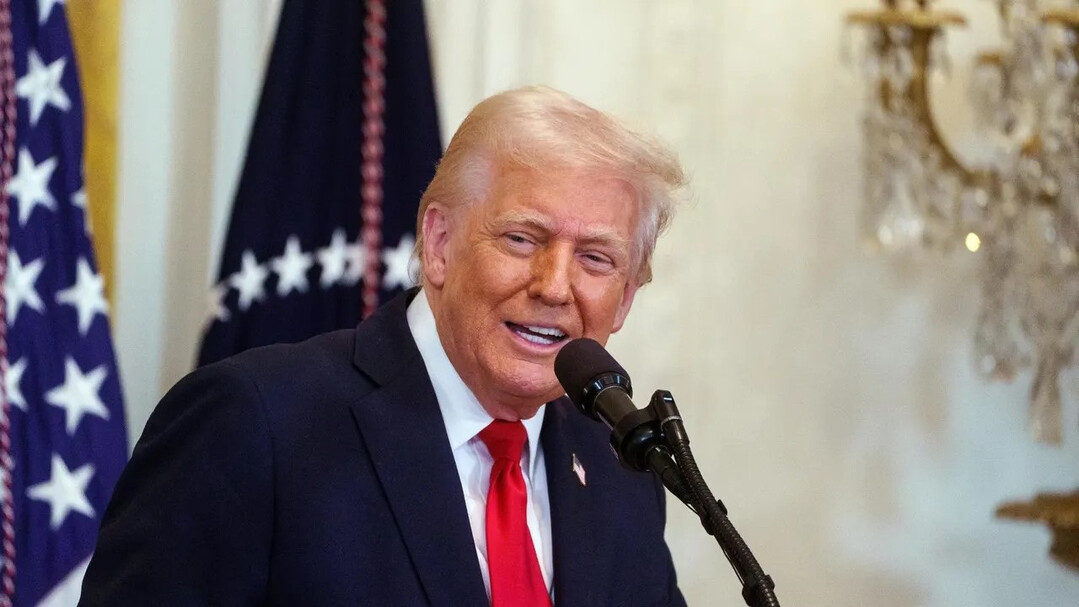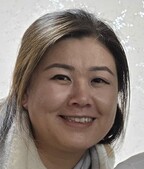
WASHINGTON – Just a day after President Donald Trump attempted to reshape the global trade order by imposing the largest import tariffs since taking office, he made an unprecedented decision to abruptly withdraw some of the tariffs amid backlash from major countries and growing anxiety in financial markets.
While optimism remained within the Trump administration that his hardline policy would be effective, financial markets sent serious warning signs, with the S&P 500 index plummeting by 12% in just one week. A senior White House official argued, "Wall Street doesn't understand Main Street's support," but the situation rapidly deteriorated.
Ultimately, President Trump shifted course, deciding to continue the trade war with China but lower many tariffs imposed on other countries. As soon as this news broke, the stock market immediately surged. President Trump expressed his satisfaction on his social media platform, saying it was "said to be the biggest day in financial history." This was a shocking move, reversing a policy that his aides had been defending just 90 minutes prior.
For days, President Trump's advisors had been arguing that his trade policies would fundamentally change the global economy. However, from Tuesday evening to Wednesday afternoon, President Trump and his trade advisors faced a barrage of concerned voices from several Republican lawmakers and key foreign leaders. They warned of global market instability and the potential for a worldwide recession, urging President Trump to take some action.
President Trump stated late Wednesday afternoon, "I've been considering a shift in direction over the last few days." He told reporters at the White House that the final decision "was made pretty early this morning. We wrote it out of our heads, without lawyers." He added, "This is something we've been discussing for a substantial period of time, and we decided to execute it today, and we're happy about it."
According to reports, shortly after Sean Hannity's Fox News show ended at 9 p.m. Tuesday, President Trump held an approximately hour-long phone call with a group of Republican senators who had appeared on the program. Some senators who participated in the call reportedly expressed concerns about the tariffs. President Trump also stated on Wednesday that he had been watching the movements of the bond market, where "people are getting nervous," that evening.
Just before the final commercial break of the Hannity interview, The Washington Post reported that Senator John Neely Kennedy of Louisiana asked the host for "15 seconds to talk directly to the president" because Senator Lindsey Graham of South Carolina had said President Trump would be watching the show. In addition to Senators Kennedy and Graham, Senate Republican Whip John Thune (South Dakota), Tim Scott (South Carolina), Katie Britt (Alabama), Tom Cotton (Arkansas), Ted Cruz (Texas), and Markwayne Mullin (Oklahoma) participated in the group interview. Some senators urged President Trump to negotiate tariff agreements with other countries, and several senators spoke directly with the president after the show ended.
Graham reportedly told President Trump, "What's enough and what's not is up to you, but you can see what people are expecting in terms of results."
Cruz told President Trump that he had two options regarding tariffs: one was to use them as leverage to persuade other countries to lower their own tariffs, and the other was to maintain the tariffs announced last week, leading to retaliation from other countries. Cruz said in the interview, "I told the president that the latter would have terrible consequences that would be very harmful to our country and to Texas," and "as we did on Hannity, I urged him to quickly negotiate one or more major trade agreements." He expressed hope that the conversation had influenced President Trump, adding that Wednesday's decision "aligns with what I and others had urged."
On Wednesday morning, President Trump met with Senator Thune at the White House and had a phone call with Swiss President Karin Keller-Sutter. Switzerland had overnight seen a 31% tariff imposed on Rolex watches and chocolate, and President Keller-Sutter strongly demanded the withdrawal of the measure, which would harm her country's economy. According to a Swiss Finance Ministry spokesperson, in the 25-minute call, President Keller-Sutter emphasized the role of Swiss companies in creating jobs in the United States and the fact that Switzerland had eliminated tariffs on U.S. industrial goods last year. (A source who briefed on Senator Thune's conversation with President Trump on condition of anonymity said that Senator Thune was at the White House for reasons unrelated to tariffs.)
Around 8 a.m., President Trump watched an interview on Fox News with JPMorgan Chase CEO Jamie Dimon. Dimon warned that a recession was a "likely outcome" given the economic uncertainty and explained that most of the people he had spoken with were "cutting back" as a result. "I'm watching calmly, but I think if we don't make progress here, things could get worse," Dimon said in the interview, which aired hours before President Trump's announcement.
President Trump urged Americans not to worry, posting "CALM DOWN!" on his social media Wednesday morning. Minutes later, he added, "NOW IS A GREAT TIME TO BUY."
Meanwhile, Commerce Secretary Howard Lutnick received a call from European Union Trade Commissioner Maroš Šefčovič. On Wednesday, the EU approved retaliatory measures against U.S. steel and aluminum tariffs, targeting a range of Trump supporters from soybean farmers to plastic manufacturers. Leaders of the EU, the largest overseas market for U.S. goods and services, were preparing even larger retaliatory measures while seeking an agreement with Washington to remove as many trade barriers as possible.
Around noon, Secretary Lutnick and Treasury Secretary Scott Bessent were in the Oval Office with President Trump, refining the language of the reversal that would surprise even some of his aides. Twelve minutes after President Trump shared his message with the world, at 1:30 p.m., Secretary Lutnick posted on X (formerly Twitter) about "one of the most amazing Truth posts from the President."
More than an hour after announcing the partial tariff withdrawal, President Trump said at an event with auto racing champions on the White House South Lawn, "I think people got a little bit ahead of themselves. They got nervous." He added, "It's not over yet, but we're getting tremendous enthusiasm from other countries," saying they would have "something that nobody even thought possible."
Following the announcement, President Trump's aides rushed to argue that this had been the intended strategy all along. Deputy Chief of Staff Stephen Miller wrote on X, "President Trump's masterful strategy, bold statecraft, and brilliant tactical planning have achieved in days what no one has accomplished in decades: the reform of international trade and the economic and political isolation of China, the global architect of economic aggression."
However, even within the White House, some senior officials appeared bewildered by the decision. Shortly after President Trump posted his "pause" on Truth Social, aides scrambled to discuss how to proceed and quickly arranged an outdoor press briefing with Secretary Bessent and White House Press Secretary Karoline Leavitt.
A senior diplomat deeply involved in trade discussions learned of the policy reversal when contacted by a reporter via text message shortly after President Trump's announcement. The diplomat, who requested anonymity to speak candidly about sensitive negotiations, rushed to gather details.
Following the post, White House aides convened to discuss the facts and talking points of President Trump's newly conceived plan. However, key details of the new agreement remained unclear even to White House staff, including whether Canada and Mexico, which were not targets of President Trump's initial tariff imposition last week, would be subject to new 10% tariffs, as mentioned by Secretary Bessent during the press briefing.
Prior to President Trump's social media announcement on Wednesday, the main White House schedule included welcoming NASCAR champions and signing an executive order in the afternoon. However, as concerning economic news flashed across television screens in the West Wing, Secretary Bessent and Secretary Lutnick joined President Trump in the Oval Office to refine the wording of his announcement.
Peter Navarro, the White House Director of Trade and Manufacturing Policy, a longtime trade advisor to President Trump who had urged him to pursue aggressive tariff policies, was not part of the Oval Office conversations, a potential sign that his influence was waning. He was also not mentioned when Secretary Bessent and Press Secretary Leavitt referred to President Trump discussing the way forward with Secretary Lutnick. While Secretary Bessent and Mr. Navarro have been widely reported to have opposing views on tariffs, President Trump's aides have repeatedly stressed that they are united in supporting all of the president's decisions.
Mr. Navarro, who was seen in the White House West Wing on Wednesday, gave a Fox Business interview outside the White House shortly after President Trump's announcement, describing the matter as a "beautiful negotiation." He avoided reporters seeking follow-up questions, but during the Fox interview, he insisted he was not sidelined. "We work beautifully together. Scotty is one of my best friends, and we've worked together for years… We're all doing our jobs for the president, and this is the result," Mr. Navarro said, concluding the interview with, "One band, one sound, my brother."
Later, speaking to reporters in the Oval Office, President Trump laid out his broader strategy in which last week's massive tariffs led to Wednesday's partial reprieve. "In many cases, it's not a negotiation until it starts. And this is what happens," President Trump said.
[Copyright (c) Global Economic Times. All Rights Reserved.]




























